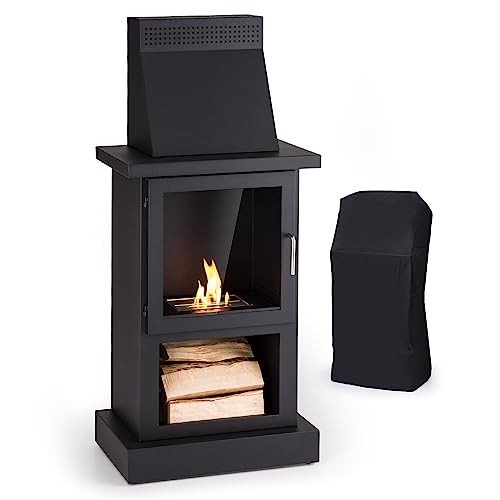ShetlerAva
ShetlerAva发表的博客
The Best Fireplaces: A Comprehensive Guide for Homeowners
Fireplaces have actually long been a precious feature in homes, offering both heat and an inviting atmosphere. They come in numerous styles, sizes, and fuel types, allowing house owners to pick one that fits their individual visual and heating requirements. This post explores the very best fireplaces, highlighting key functions and factors to consider to assist you make an informed decision.
Kinds of Fireplaces
Understanding the different kinds of fireplaces is crucial in selecting the best choice for your home. Below are the most frequently used fireplaces:

Wood-Burning Fireplaces
- Benefits: Traditional appeal, natural ambiance, and effective heating.
- Disadvantages: Requires regular maintenance, ash disposal, and is subject to local guidelines concerning emissions.
Gas Fireplaces
- Benefits: Convenient, clean-burning, and easy to operate.
- Disadvantages: Requires a gas line, can be more pricey to install initially.
Electric Fireplaces
- Benefits: Easy installation, low maintenance, and the most safe alternative for homes with children or family pets.
- Downsides: Lack the authentic feel of wood or gas flames, might not warm large areas successfully.
Pellet Stoves
- Benefits: Eco-friendly, effective, and offer a steady heat output.
- Downsides: Requires electricity to operate, and pellet supply can be restricted in some areas.
Ethanol Fireplaces
- Benefits: No chimney needed, portable, and ecologically friendly.
- Downsides: Generally less efficient for heating.
A Comparison of Fireplace Types
| Type | Installation Cost | Running Cost | Heat Output | Upkeep | Ecological Impact |
|---|---|---|---|---|---|
| Wood-Burning | ₤ ₤ | ₤ | High | High | Moderate |
| Gas | ₤ ₤ ₤ | ₤ ₤ | Medium-High | Low | Moderate |
| Electric | ₤ | ₤ ₤ | Low | Very Low | Low |
| Pellet | ₤ ₤ | ₤ | Medium | Medium | Low |
| Ethanol | ₤ ₤ | ₤ ₤ ₤ | Low | Very Low | Very Low |
Leading Considerations When Choosing a Fireplace
When you're in the market for a new fireplace, keep the following aspects in mind to guarantee you select the very best one for your home:
Purpose and Functionality: What do you desire your fireplace to do? Is it for heating or aesthetics? This will guide your choice significantly.
Area Availability: Measure the location where you want to install the fireplace. Guarantee the selected type fits without frustrating the area.
Fuel Source: Assess the availability and cost of different fuel sources in your location to prevent unforeseen costs.
Setup Complexity: Some fireplaces might need significant modifications to your existing home structure.
Building Regulations and Regulations: Be mindful of local laws relating to ventilation, safety, and emissions, as these can affect your fireplace option.
Visual Appeal: The style and design of a fireplace can function as a focal point or enhance the existing design, so choose one that improves your home's general aesthetic.
Advantages of a Fireplace
Including a fireplace to your home pays for various benefits:
Enhanced Aesthetic Appeal: A fireplace can raise the decoration of any space, creating a cozy and inviting atmosphere.
Increased Home Value: A well-installed fireplace can include substantial worth to your home, making it attracting prospective buyers.
Energy Efficiency: Modern fireplaces, especially gas and pellet ranges, can supply effective heating while reducing energy expenses.
Emergency Heat Source: In cases of power interruptions, a wood or gas fireplace can act as a reputable heat source.
Celebration Space: Fireplaces often end up being the centerpiece for gatherings, promoting heat and convenience throughout family or buddies' get-togethers.
Often Asked Questions (FAQs)
Q: How much does it cost to set up a fireplace?A: Installation expenses can vary significantly based upon the kind of fireplace, structural requirements, and labor expenses. Standard electric fireplaces might cost around ₤ 300, while custom-built wood or gas fireplaces can run from ₤ 3,000 to upwards of ₤ 10,000. Q: Are electric fireplaces safe?A: Yes, electric
fireplaces are normally safe.
They do not release carbon monoxide and have no open flames. They frequently consist of security functions like automatic shut-off systems. Q: How typically should I have my chimney cleaned?A: If you use a wood-burning fireplace, it's advised to have your chimney cleaned up a minimum of once a year
to avoid creosote accumulation, which can cause chimney fires. Q: Can I install a gas fireplace myself?A: It's not recommended to install a gas fireplace without professional support due to the intricacies connected with gas
lines, ventilation, and safety regulations. Q: What are the best kinds of fuel for wood-burning fireplaces?A: The best fuel choices include well-seasoned hardwoods like oak, maple, or hickory, as they burn hotter and cleaner compared to softwoods. Choosing the very best fireplace for your home
involves thinking about lots of elements, from visual appeals to operate and safety. Each type of fireplace has its special advantages and prospective downsides.
Understanding these aspects, together with your personal heating needs and spending plan constraints, will assist you in making a notified choice. Ultimately, a fireplace can supply not only heat however also a rich atmosphere, transforming your home into a welcoming sanctuary.
